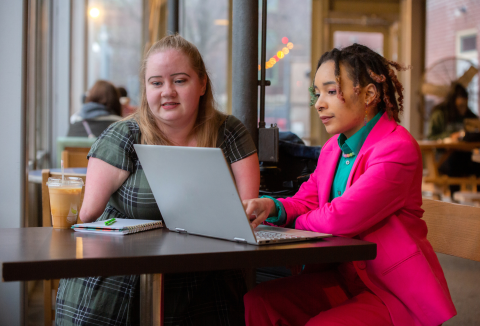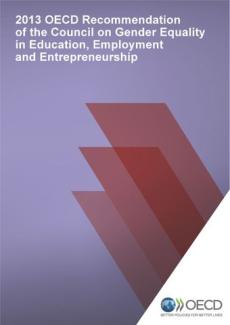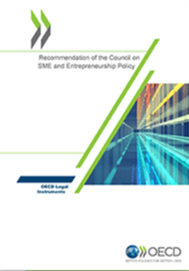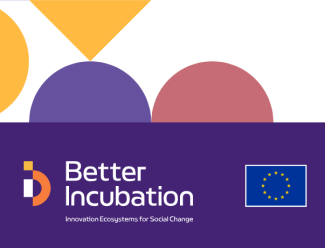Who are these policies and programs for?
These policies typically target groups that are under-represented in entrepreneurship, or that face greater barriers to business creation and self-employment, e.g. women, youth, seniors, the unemployed and migrants. There are 6 versions of the self-assessment Tool: an inclusive entrepreneurship assessment that can be used to explore any or all inclusive entrepreneurship groups as well as tailored assessments for women, youth, seniors, the unemployed and migrants.
Assess your inclusive entrepreneurship policies and programmes
- Each self-assessment includes a collection of good practice statements against which you are asked to assess your city, region or country.
- The good practice statements are organised in 6 modules. You will need approximately 10 minutes to complete each of the modules that make up the assessment.
- Creating an account will allow you to save the assessment to complete at a later time. This will also allow you to create groups and invite colleagues and other stakeholders to take the assessment.
- Please answer as honestly as possible to ensure that the tool provides you with the most relevant resource material.

Women's entrepreneurship
An entrepreneurship assessment to explore the opportunities, challenges and support systems available for women starting and growing their businesses.

Youth entrepreneurship
An entrepreneurship assessment to explore the opportunities, challenges and support systems available for young people in entrepreneurship.

Migrant entrepreneurship
An entrepreneurship assessment to explore the opportunities, challenges and support systems available for immigrant entrepreneurs and entrepreneurs with migrant backgrounds.

Senior entrepreneurship
An entrepreneurship assessment to explore the opportunities, challenges and support systems available for older people active in entrepreneurship and business ownership.

Entrepreneurship by the unemployed
An entrepreneurship assessment to explore the opportunities, challenges and support systems available for people starting and growing their businesses following a period of unemployment.

Inclusive entrepreneurship (all groups)
This assessment can be used to explore the opportunities, challenges and support systems available to support the overall inclusion and diversity in entrepreneurship (i.e. for all groups). The assessment can also be customised to consider another inclusive entrepreneurship group (i.e. entrepreneurs with disabilities) or a sub-group within inclusive entrepreneurship groups (i.e. young migrant entrepreneurs, women entrepreneurs starting from unemployment).

Youth Entrepreneurship Policy Academy
The Youth Entrepreneurship Policy Academy (YEPA) is a policy-learning network of participants, including policymakers, youth entrepreneurship networks and organisations, social entrepreneurship networks, youth entrepreneurship programme managers and researchers. The YEPA builds on a long-standing OECD-EU co-operation on inclusive entrepreneurship and aims to improve youth labour market outcomes by supporting governments and their partners in designing and implementing appropriate youth entrepreneurship policies. The network seeks to strengthen youth entrepreneurship policies and programmes by raising knowledge about the barriers faced by young people in entrepreneurship and facilitating exchanges between policy makers, young entrepreneurs and experts on “what works” in youth entrepreneurship policy. Visit yepa-hub.org to access resources, materials and information about youth entrepreneurship policy.

The Missing Entrepreneurs
The Missing Entrepreneurs series of biennial reports provide an overview of recent trends and policy developments in the field of inclusive entrepreneurship. The report examines how government policies can release untapped entrepreneurial potential from under-represented parts of the population of impactful entrepreneurs, including women, youth, seniors, the unemployed, immigrants and people with disabilities. It offers comparative data on the entrepreneurship activities and the barriers faced by each group across OECD and European Union countries. The series provides concrete examples of policies and initiatives that show promising results and/or innovative approaches to inspire others. Each report contains thematic chapters as well as country profiles for each of the 27 EU Member States showing the major recent trends in diversity in entrepreneurship and the current state and evolution of policy for each country.
OECD Recommendation on Creating Better Opportunities for Young People
The OECD Recommendation on Creating Better Opportunities for Young People promotes the successful engagement of young people in the labour market and society, including through youth entrepreneurship. It outlines how countries can implement government-wide strategies to support young people and builds on the OECD Youth Action Plan.

OECD Recommendations on Gender Equality in Education, Employment, Entrepreneurship and Public Life
The OECD Recommendations on Gender Equality in Education, Employment, Entrepreneurship and Public Life promote the adoption of policies and practices that support gender equality in education, foster family-friendly policies and working conditions, facilitate women to participate in the labour market, notably through the reduction of the gender gap in entrepreneurship activity. These Recommendations aim to mainstream gender equality in the design, development, implementation and evaluation of relevant public policies and budgets.

OECD Recommendation on SME and Entrepreneurship Policy
The OECD Recommendation on SME and Entrepreneurship Policy provides a holistic framework and tools to support the development of coherent, effective and efficient SME and entrepreneurship policies, notably those that support inclusive and sustainable growth for the benefit of all. The Implementation Toolkit aims to put the Recommendation into action by providing hands-on guidance to policy makers as well as resources and additional tools.

Better incubation project
For more inspiration on how to ensure that incubators and business support organisations are more mindful of specific groups such as youth, women, migrants, seniors and people with disabilities you can consult the results of the better incubation project. Funded by the European Commission, EBN, Impact Hub and EVPA (today Impact Europe) have developed this pioneer project in the field of incubation that triggered a shift of paradigm for participants. Several publications are now available online, among others the Better Incubation Toolkit.


